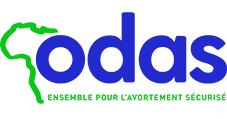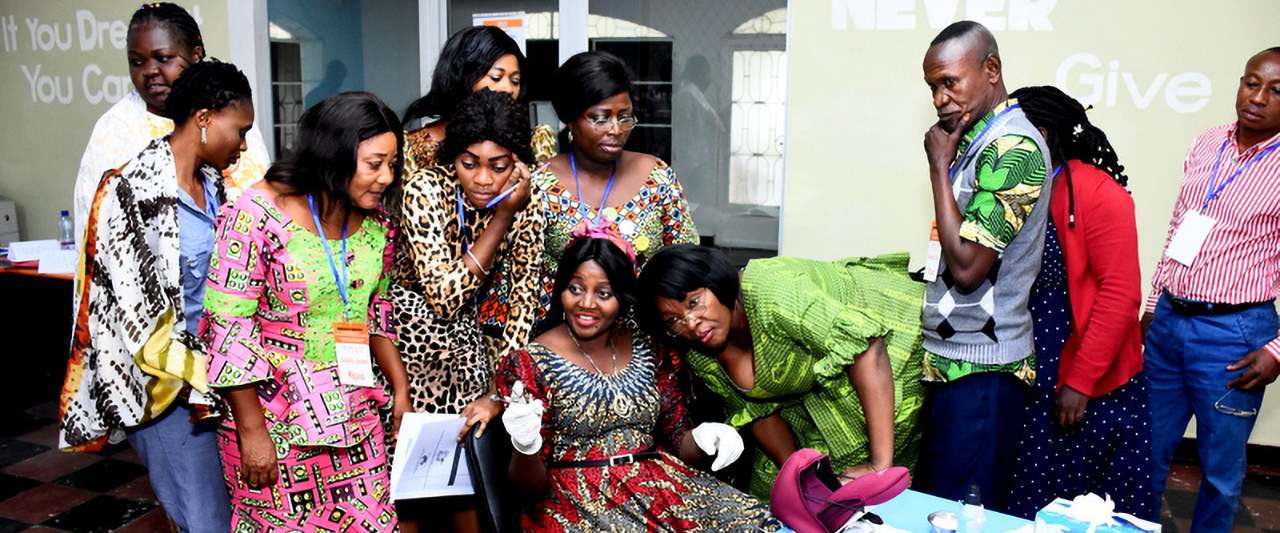A bold effort to coordinate and catalyze the safe abortion movement across Francophone Africa begins
Joining actions around the world for International Safe Abortion Day on Sept. 28, this week marks the launch of Le Centre ODAS (Organisation pour le Dialogue pour l’Avortement Sécurisé / Organization for Safe Abortion Dialogue), an innovative effort to strengthen the movement for safe abortion in Francophone Africa.

Across the Francophone region, government officials, health-care providers, youth groups, feminist networks, professional associations, and non-governmental organizations are already working to dismantle abortion stigma, highlight the consequences of unsafe abortion, and advocate for sexual and reproductive health and rights. Le Centre will unite these actors in a network spanning Benin, Burkina Faso, Côte d’Ivoire, Guinea, Mali, Mauritania, Niger, Senegal, Togo, and the Democratic Republic of the Congo.
“We are thrilled to get to work expanding access to safe abortion across the Francophone Africa region,” says Dr. Rouguiatou Balde, Le Centre ODAS director. “Our efforts will focus on meeting the reproductive health-care needs of women and girls—as defined by them—and reducing barriers to care like stigma, restrictive laws, lack of trained health workers, lack of knowledge about reproductive health, and more. We want to ensure that governments, health facilities, local leaders, and communities all support a pregnant person’s autonomy and right to make their own informed decisions.”
Le Centre will provide technical and operational support to the safe abortion movement—offering training opportunities, sharing best practices, coordinating strategies, and mobilizing funding—to equip members to pursue an ambitious regional agenda that will expand abortion access in the region. Le Centre and the ODAS network will be explicitly feminist, building strong social movements around the broad issue of reproductive choice and developing new intersectional alliances. They will also respond to the paradigm shift caused by the COVID-19 pandemic.
“This is a groundbreaking moment,” says Sosthène Dougrou, director of Ipas Francophone Africa. “For the first time, we will bring together the full diversity of those working for abortion rights across the region—young people, advocates, governments, parliamentarians, and global, regional and local partners with technical expertise. Le Centre ODAS is the hub that will coordinate and bolster this unprecedented work in the Francophone Africa region.”
In its first three years, Le Centre plans to:
- Conduct regional Safe Abortion Dialogue meetings that convene ODAS members and allies for shared learning.
- Support national Safe Abortion Dialogues to generate country-level safe abortion workplans and hold follow-up meetings to advance workplans and measurements of progress.
- Establish regional and national working groups with government leaders, technical experts, and abortion rights champions in each ODAS country.
- Set up and support regional taskforces to drive advances in abortion service delivery, commodity security, community engagement, research, policy, advocacy, and resource mobilization
- Develop a Safe Abortion Partnership Platform to track country-level progress on safe abortion indicators and facilitate peer-to-peer technical support amongst ODAS members.
- Support network members to participate in key regional and international events to build momentum around Francophone Africa’s movement for safe abortion.
Ipas will serve as the initiative’s founding host, providing tailored operational support over the first three years. Le Centre’s staff will independently coordinate, co-create, and shape the nascent ODAS movement and plan an eventual transition to full local ownership.
Shining a light on local demands for abortion access
As part of the International Day for Safe Abortion on Sept. 28, Le Centre ODAS and Ipas Francophone Africa are joining forces with existing coalitions in many countries in the region (Benin, Burkina Faso, Cameroon, Côte d’Ivoire, the Democratic Republic of the Congo, Guinea, Madagascar, and Mali) to kickstart new efforts that will highlight local needs for abortion access and rights. In settings where attention has rarely been paid to the great unmet need for access to safe abortion, Le Centre ODAS will gather stakeholders from across society to assess the state of sexual and reproductive rights. These coalitions will identify challenges and opportunities ahead and build on initiatives already underway.
A vast unmet need for abortion care
In 2015, an assessment of safe abortion needs and opportunities in Francophone Africa conducted by Ipas found “a vast unmet need” for safe abortion care. Even though most countries have legal provisions for abortion—such as to protect the life and health of the woman and in cases of rape, incest and fetal abnormalities—in many countries these laws have not been translated into actual services for women. There also are strong cultural, religious and political opponents to comprehensive abortion care, in addition to other barriers, such as stigma and lack of awareness of the legality of abortion.
“Le Centre ODAS will work to solve these systemic issues,” says Muadi Mukenge, chief of development and external relations for Ipas. “The demand for a sustained, committed movement for abortion access is urgent, and Ipas is proud to collaborate with regional champions to meet this need. We look forward to sharing our technical expertise.”
Kathryn Andersen, chief scientific and technical officer for Ipas, says the initiative will be driven by Ipas’s sustainable abortion ecosystem framework and will bring to bear Ipas’s decades of experience working across all technical areas of woman-centered abortion access.
“This is a tremendous opportunity to advance a broad and multi-faceted common agenda for increasing access to safe abortion, and to foster innovation that is rooted in local needs and realities,” Andersen says. “One of Le Centre’s priorities will be ensuring that policies and programming are designed with women and youth from the region.”



